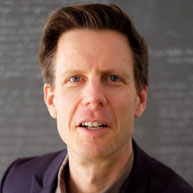I get a bunch of questions from veterans about whether or not going to graduate school is the right career move after they transition. It really depends on your situation -- strengths, goals, and gaps in your skills and experiences. But I often find that veterans choose higher education for reasons that don't necessarily align with their needs and goals. And sometimes it's because they don't realize there are other options. Today's article comes from Josh Spodek -- a professor, entrepreneur, and astrophysicist, amongst other things -- whose wide breadth of experiences informs a unique view of strengths veterans have that they may not have considered.
It's easy to look at people who went to school while you served and think they're ahead of you, which can cause anxiety. As a professor with an MBA and PhD who teaches and coaches leadership and entrepreneurship at elite schools like Columbia Business School and New York University, I want to point out many skills they often lack that you might have assumed they had.
My goal is to help you get hired, funded, or promoted by positioning yourself better and lowering your anxiety. I also intend this post to complement SuccessVets' posts Why Top Performers Fail When They Leave The Military, which listed skills you might not realize you lacked, and Transitioning Veterans Achieve Extraordinary Success, which listed strengths you probably have.
For example, MBAs network so much that it's easy to assume they make a lot of great connections. Many do, but many just share business cards and résumés without creating intimacy that service members often do.
At the root of shortcomings is that most traditional academic education is designed to challenge and develop students intellectually, but less socially and emotionally. Professors give them lectures, case studies, readings, and papers that make them think, but less often projects with unknown outcomes that force them to challenge themselves personally or take complete responsibility for others. On the contrary, universities often compete to offer more services and facilities that reduce personal responsibility.
In other words, a traditional academic education is often emotionally and socially passive. I design my courses and books to be active, specifically to address these shortcomings and develop them into strengths. I offer them independently of universities because so many graduate from them having taken few to no active, experiential courses.
That's not to say some students with traditional academic educations haven't challenged themselves independently or had professors who did. Extracurricular activities like sports or campus leadership roles, as well as other life experience, can fill in gaps.
Here are more examples of shortcomings I often see in university graduates in areas employers and investors value:
-
Responsibility and consequences: university projects are often designed with known outcomes everyone can achieve, which limits the level of personal responsibility students
need to take. There is almost nothing in schools like another person's physical safety depending on you taking full responsibility. Many university students have never experienced taking
complete responsibility for their work where, no matter what, they will get something done.
-
Delegation: since students can't always presume a teammate has taken complete responsibility for his or her role, they rarely experience completely delegating a task to
another, entrusting them to figure it out and do it no matter what, limiting their level of intimacy in teamwork.
-
Uncertainty: when students know that most assignments have expected outputs—more recipe than open-ended project—they learn to game the outcome. Many can graduate without ever
facing a challenge they didn't know could be solved.
-
Service and humility: service-based leadership is often an advanced concept for students at elite institutions, especially those who also get internships at top corporations.
To the extent they see themselves and their peers at the tops of organization charts, they don't experience humility, let alone knowing that they could be ordered to risk their lives in the
service of 330 million.
-
Humor in stressful situations: not having faced life-or-death situations, they haven't found the humor many service members use to handle them.
-
Experience: elite students have read widely so have indirectly experienced more than most, but directly haven't done as much. Many have also traveled to dozens of countries,
but not all have lived in those places beyond cursory visits.
-
Physical exertion and exhaustion: Outside of athletes, dancers, and some performers, most haven't faced and overcome extreme physical challenges. Most of their physical
challenges were voluntary and safe.
-
Excuses and extensions: extensions are easy to get, more so the more elite the institution. Most students do the work on time, but some learn they face little penalty to turn
projects in late and end up doing so.
- Risk: though risk is at the core of business, it doesn't mean to one's life and limbs. Handling corporal risk puts financial risk in perspective.
Only you know if you have strengths in these areas (if not, I recommend my courses and books, which develop them, as the testimonials of people who take them attest). In all fairness, many university graduates excel in these areas.
But many service members are strong in these areas and don't realize what they offer potential employers and investors that other candidates don't. I hope this awareness increases your awareness and confidence positioning yourself to be hired, funded, and promoted.
Contributing article by Josh Spodek

Joshua Spodek is an Adjunct Professor at NYU, leadership coach and workshop leader for Columbia Business School, columnist for Inc., founder of Spodek Academy, and author of Leadership Step by Step (launching February 2017). He has led seminars in leadership, entrepreneurship, creativity, and sales at Harvard, Princeton, MIT, INSEAD (Singapore), the New York Academy of Science, and in private corporations. He holds five Ivy League degrees, including a PhD in Astrophysics and an MBA, and studied under a Nobel Prize winner. He helped build an X-ray observational satellite for the European Space Agency and NASA, co-founded and led as CEO or COO several ventures, and holds six patents.

